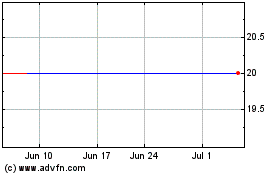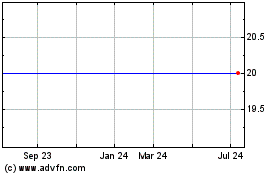Cardiovascular Systems Receives Unconditional FDA Approval for ORBIT II Coronary Clinical Trial
April 27 2010 - 4:05PM
Business Wire
Cardiovascular Systems, Inc. (CSI) (Nasdaq: CSII), has received
Food and Drug Administration unconditional Investigational Device
Exemption (IDE) approval, allowing the company to proceed with
ORBIT II, a pivotal trial to evaluate the safety and effectiveness
of CSI’s Diamondback 360® System in the coronary arteries. CSI
received conditional IDE approval for the ORBIT II study in January
2010. The pivotal trial will initially enroll up to 100 patients at
as many as 50 U.S. sites, with the potential to enroll up to 429
patients. Dr. Jeffrey Chambers, an interventional cardiologist with
Metropolitan Cardiovascular Consultants, Minneapolis, is the
principal investigator.
The Diamondback 360° is designed to be well suited for removing
calcific and fibrocalcific plaque in coronary lesions. The system
uses a diamond-coated crown with a unique orbital mechanism of
action to sand and remove hardened plaque, which may facilitate
more effective stent placement and restoration of blood flow in the
coronary arteries. The orbital action also allows continuous saline
and blood flow through the lesion, which may be advantageous during
treatment.
“The unconditional FDA IDE approval continues CSI’s progress
toward regulatory approval for a coronary application and potential
significant market expansion for our product technology,” said
David L. Martin, president and CEO of Cardiovascular Systems. “We
are optimistic the ORBIT II study will reinforce the safety and
effectiveness of removing plaque using the Diamondback 360° System,
as already shown in our ORBIT I coronary feasibility study of 50
subjects and in the treatment of more than 25,000 patients to-date
with peripheral arterial disease (PAD).”
In 2008, CSI completed the ORBIT I coronary trial, the first
in-human feasibility study, which enrolled 50 patients in India.
The Diamondback 360° was shown to be successful in 98 percent of
patients with calcified lesions, and the acute procedural success
rate, including stent placement, was 94 percent. These results met
the company’s safety and efficacy endpoints and were among the data
the FDA considered in granting the ORBIT II IDE approval.
Dr. Chambers said, “Coronary arterial disease is the most common
form of heart disease in the United States, affecting more than 16
million people. After the successes of the ORBIT I study, we are
eager to expand the number of coronary patients treated with the
Diamondback 360°, and acquire acute and long-term data. We believe
the unique features of the Diamondback 360° are designed
specifically to remove calcified plaque in coronary arteries to
facilitate stent placement.”
Safe Harbor
Certain statements in this news release are forward-looking
statements within the meaning of the Private Securities Litigation
Reform Act of 1995 and are intended to enjoy the protection of the
safe harbor for forward-looking statements provided by that Act.
For example, statements in this press release regarding (i) the
number of patients and sites that will be involved in the ORBIT II
trial; (ii) CSI’s progress toward regulatory approval for a
coronary application; and (iii) CSI’s optimism about the outcomes
in a coronary application through the ORBIT II study, are
forward-looking statements. These statements involve risks and
uncertainties which could cause results to differ materially from
those projected, including but not limited to the potential for
unanticipated delays in enrolling medical centers and patients for
studies; new data or events that may disrupt plans for these
studies; unexpected results or clinical outcomes in the ORBIT II
trial and other factors detailed from time to time in CSI’s SEC
reports, including its most recent annual report on Form 10-K. CSI
encourages you to consider all of these risks, uncertainties and
other factors carefully in evaluating the forward-looking
statements contained in this release. As a result of these matters,
changes in facts, assumptions not being realized or other
circumstances, CSI's actual results may differ materially from the
expected results discussed in the forward-looking statements
contained in this release. The forward-looking statements made in
this release are made only as of the date of this release, and CSI
undertakes no obligation to update them to reflect subsequent
events or circumstances.
About Cardiovascular Systems, Inc.
Cardiovascular Systems Inc., (CSI) (Nasdaq: CSII) based in St.
Paul, Minn., is a medical device company focused on providing
clinically proven, safe and effective interventional solutions for
vascular disease. The company’s Diamondback 360® System removes
calcified and fibrotic plaque in small and large peripheral
vessels, and addresses many of the limitations associated with
existing surgical, catheter and pharmacological treatment
alternatives. In August 2007, the U.S. FDA granted 510(k) clearance
for the use of the Diamondback 360° as a therapy for PAD
(peripheral arterial disease), and CSI commenced a U.S. product
launch in September 2007. Since then, more than 25,000 procedures
have been performed using the system. For more information visit
the company’s Web site at www.csi360.com.
Product Disclosure
The Diamondback 360® PAD System is a percutaneous orbital
atherectomy system indicated for use as therapy in patients with
occlusive atherosclerotic disease in peripheral arteries and
stenotic material from artificial arteriovenous dialysis fistulae.
The system is contraindicated for use in coronary arteries, bypass
grafts, stents or where thrombus or dissections are present.
Although the incidence of adverse events is rare, potential events
that can occur with atherectomy include: pain, hypotension,
CVA/TIA, death, dissection, perforation, distal embolization,
thrombus formation, hematuria, abrupt or acute vessel closure, or
arterial spasm.
Cardiovascular Systems (NASDAQ:CSII)
Historical Stock Chart
From May 2024 to Jun 2024

Cardiovascular Systems (NASDAQ:CSII)
Historical Stock Chart
From Jun 2023 to Jun 2024
